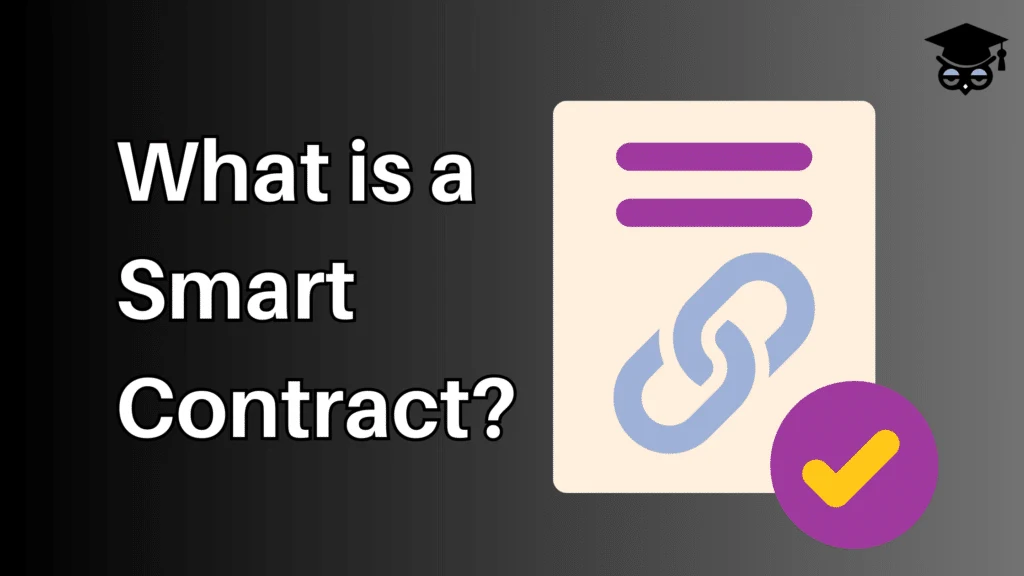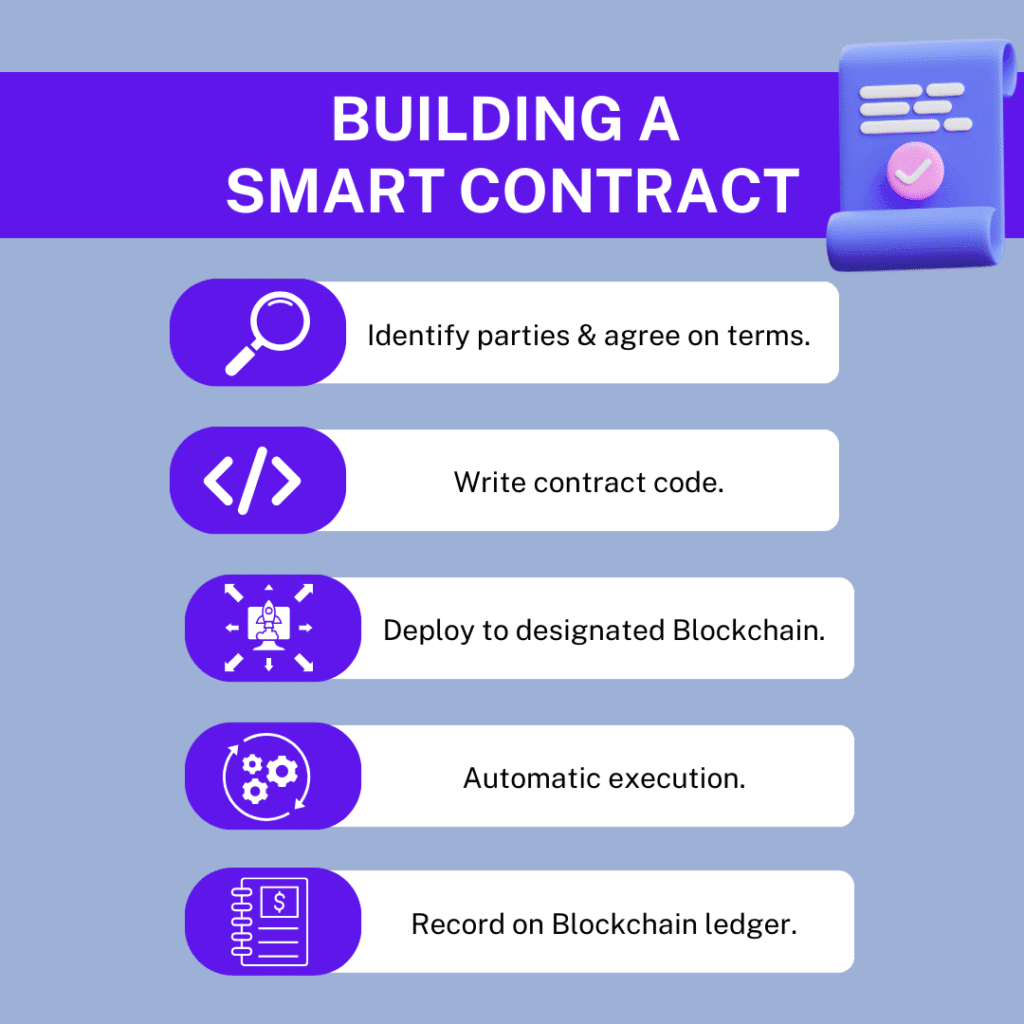What is a Smart Contract?
A smart contract is a digital agreement between two or more parties. It is produced, completed, and enforced entirely on a blockchain.
The Long Definition:
A smart contract is a digital agreement between two or more parties. It is recorded, tracked, and enforced through computer code.
Unlike traditional contracts, which are written on paper and require a lawyer to enforce them, smart contracts are self-executing and self-enforcing. This means that when the conditions of the contract are met, the contract is automatically executed and the parties involved are held to its terms.
Smart contracts are also immutable. This means once they are written, they cannot be changed. This provides a level of security and trust that is not present in traditional contracts.
Smart contracts are written in a programming language named Solidity. They are stored on a distributed ledger, such as the Ethereum blockchain.

How Smart Contracts Work
Smart contracts use a combination of digital signatures, public-key cryptography, and coding to create an agreement that is both secure and enforceable.
When two parties enter into a smart contract, they first agree to the terms of the contract and then sign it using their digital signatures. The signatures are used to authenticate the identity of the parties, and then the contract is stored on a blockchain.
Once the contract is stored on the blockchain, it can be accessed and verified by all of the involved parties. The smart contract is automatically executed when the conditions of the contract are met.
For example, if the contract states that a certain amount of money is to be transferred when certain conditions are met such as delivery of goods purchased, the money will be transferred when those conditions are met.
Advantages of Smart Contracts
Smart contracts have many advantages over traditional contracts. They are faster and more efficient. Smart contracts can be executed in a matter of seconds, while traditional contracts can take days or even weeks to be completed.
Smart contracts also eliminate the need for a third party to enforce the contract. This saves time and money because there is no need to hire a lawyer or mediator to oversee the contract.
Finally, smart contracts are more secure than traditional contracts. Since they are stored on a blockchain which is a distributed ledger, they cannot be altered or changed. This provides a greater level of security and trust than with traditional contracts.
Examples of Smart Contracts
Smart contracts are being used in a wide variety of industries and applications. Here are a few examples of how smart contracts are being used today. They can be used in:
- Insurance: to automate the payment of claims when certain conditions are met.
- Supply Chain Management: to track the movement of goods and ensure that payments are made on time.
- Real Estate: to automate the buying and selling of properties.
- Healthcare: to securely store and transfer patient data.
- Banking: to automate certain banking processes, such as loan approval and payments.

Smart Contracts and Cryptocurrencies
Smart contracts are closely linked to cryptocurrencies because they are used to facilitate the transfer of digital assets. For example, a smart contract can automate the transfer of cryptocurrency from one party to another when certain conditions are met.
Smart contracts are also used to issue new digital tokens as part of an Initial Coin Offering (ICO). In this case, the smart contract is used to create and issue the tokens, as well as to manage and track their ownership.
Limitations of Smart Contracts
Smart contracts do have limitations.
They are only as secure as the code that is used to create them. If the code is flawed or has security vulnerabilities, it can be exploited.
And, once created, smart contracts cannot be altered. So, if the terms of the contract are incorrect, they cannot be corrected and a new smart contract would need to be produced.
Finally, smart contracts are only as good as the data that is used to create them. If the data is inaccurate or incomplete, the contract may not be enforceable.
Developing and Implementing Smart Contracts
Developing and implementing smart contracts requires expertise in programming languages such as Solidity, as well as an in-depth understanding of blockchain technology.
The first step in developing a smart contract is to write the code. The code must be written in a way that is secure, efficient, and compliant with relevant laws and regulations. Once the code is written, it must be tested to ensure it is secure and works as intended.
Once the contract is written and tested, it must be deployed on a blockchain. This can be done either by creating a new blockchain or by deploying the contract on an existing blockchain. The contract must then be tested again to ensure that it is working as intended.

Smart Contract Security
Smart contracts are only as secure as the code that is used to create them.
The most important aspect of security is to ensure that the code is bug-free and resilient to cyber-attacks. This can be done by using automated tools to scan the code for security vulnerabilities.
Finally, it is important to ensure that the smart contract is deployed on a secure and reliable blockchain to protect it against attacks or malicious actors.
Smart Contract Platforms
Smart contracts are typically used on a blockchain platform. There are many blockchain platforms available, each with its own set of features and advantages.
Ethereum is the most popular platform for deploying smart contracts. It is a decentralized platform that can deploy, store, and execute smart contracts. Ethereum also has the largest ecosystem of developers and tools, making it the ideal platform for creating and deploying smart contracts.
Other popular platforms include EOS, Hyperledger Fabric, and NEO. Each platform has its own set of features and advantages, so it is important to do your research before deciding which platform to use.
